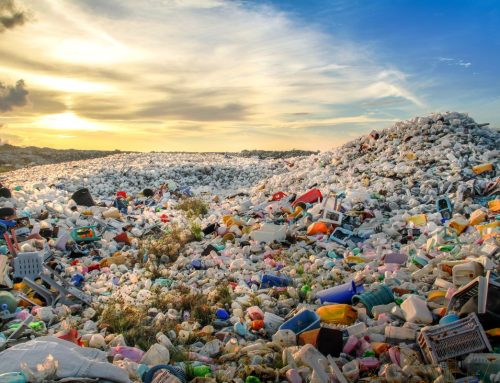What is “Eco-friendly”
“Eco-friendly” represents a holistic approach that revolves around practices, products, and actions intentionally designed to minimize harm to the environment while maximizing sustainable benefits. This term encapsulates a multifaceted spectrum of efforts rooted in the ethos of sustainability, conservation, and the preservation of natural ecosystems.
At its core, eco-friendly initiatives are driven by the intention to mitigate detrimental effects on the environment. These initiatives foster a profound understanding of our ecological footprint and strive to curtail it through conscious decision-making and responsible actions.
Key aspects that define eco-friendly practices
Eco-friendly practices focus on using resources in a sustainable manner, ensuring that natural resources are not depleted faster than they can be replenished. This includes using renewable resources whenever possible and minimizing waste generation.
- Reducing Pollution: Eco-friendly approaches aim to reduce pollution and minimize the release of harmful chemicals or pollutants into the air, water, and soil. This involves using clean energy sources, reducing emissions, and properly managing waste disposal.
- Conservation of Natural Habitats: Protecting and preserving natural habitats is crucial in eco-friendly efforts. This includes conservation of biodiversity, preservation of ecosystems, and efforts to mitigate habitat destruction.
- Promotion of Renewable Energy: Eco-friendly practices often involve supporting and using renewable energy sources such as solar, wind, hydroelectric, and geothermal energy. These sources have minimal impact on the environment and contribute to reducing reliance on fossil fuels.
- Reducing Waste and Recycling: Eco-friendly practices prioritize reducing waste generation and encourage recycling and reuse. This involves minimizing single-use items, promoting composting, and implementing efficient recycling systems.
- Supporting Sustainable Agriculture and Production: Eco-friendly practices in agriculture focus on sustainable farming methods that minimize chemical use, prioritize soil health, and reduce the environmental impact of food production. Similarly, in manufacturing, sustainable production methods that use eco-friendly materials and processes are encouraged.
- Advocating for Environmental Conservation and Education: Eco-friendly initiatives often involve educating individuals and communities about environmental issues, encouraging them to take action to protect the planet. This includes raising awareness about conservation, climate change, and sustainable living practices.
Eco-friendly practices are crucial for addressing pressing global challenges like climate change, pollution, loss of biodiversity, and resource depletion. Individuals, businesses, and governments play significant roles in adopting and promoting eco-friendly practices to ensure a healthier and more sustainable future for the planet. This involves making conscious choices in daily habits, supporting eco-conscious businesses, advocating for environmentally friendly policies, and continuously striving to reduce our environmental footprint.

The ecology today
In recent years, the awareness about the importance of being environmentally conscious and adopting eco-friendly practices has significantly grown worldwide. There is a greater recognition of environmental challenges such as climate change, biodiversity loss, and pollution, leading to an increase in the adoption of more sustainable behaviors and choices.
Nowadays, the term “eco-friendly” encompasses a wide range of initiatives and practices aiming to minimize the negative impact on the environment.
Areas where ecology has affected the most
- Conscious Consumption: Consumers are opting for products and services that are environmentally friendly. This includes a preference for items made from sustainable, organic, or recycled materials, as well as choosing companies committed to sustainable and ethical practices.
- Sustainable Mobility: More people are opting for greener modes of transportation such as electric vehicles, bicycles, public transportation, or walking, thereby reducing greenhouse gas emissions.
- Renewable Energies: The adoption of renewable energy sources, such as solar or wind power, is increasing both in residential and commercial settings, as a means to reduce dependence on fossil fuels and lower carbon emissions.
- Waste Reduction: There is active promotion of waste reduction, recycling, and reuse. People are seeking alternatives to single-use products and adopting practices like composting to reduce the amount of waste sent to landfills.
- Sustainable Construction: In the construction industry, there is a growing focus on using eco-friendly materials and designing buildings that are more energy-efficient and environmentally respectful.
- Awareness and Education: Raising awareness about the importance of environmental sustainability and educating people about eco-friendly practices has become crucial to drive significant changes on both an individual and collective level.
Businesses are also responding to this trend by adopting more sustainable business practices and offering eco-friendly products and services. Sustainability has become an added value and a deciding factor for many consumers when choosing a brand or company.
Nowadays, the eco-friendly mindset is increasingly embedded in society, and individuals, businesses, and governments are working together to promote a more sustainable and environmentally conscious way of life.
Advantages to be an eco-friendly planet
Transitioning to an eco-friendly world brings numerous advantages across various aspects of society, the environment, and the economy. Here are several key advantages:
Environmental Preservation
An eco-friendly world prioritizes environmental preservation. This means cleaner air and water, protection of biodiversity, and the preservation of natural habitats. It helps mitigate climate change, reduces pollution, and safeguards ecosystems, ensuring a healthier planet for current and future generations.
Resource Conservation
Adopting eco-friendly practices encourages the responsible use of resources. It promotes the use of renewable energy sources, reduces reliance on finite resources like fossil fuels, and emphasizes sustainable consumption patterns, thereby conserving natural resources for the long term.
Improved Public Health
By reducing pollution and exposure to harmful chemicals, an eco-friendly world contributes to better public health. Cleaner air and water, along with reduced exposure to toxic substances, can lead to lower rates of respiratory illnesses, allergies, and other health issues.
Sustainable Economic Growth
Embracing eco-friendly practices fosters sustainable economic growth. Investments in renewable energy, green technologies, and sustainable infrastructure create jobs, stimulate innovation, and drive economic development while minimizing negative impacts on the environment.
Cost Savings and Efficiency
Eco-friendly practices often result in cost savings over time. For instance, energy-efficient buildings reduce utility costs, while the use of renewable energy reduces reliance on expensive fossil fuels. Additionally, practices like recycling and waste reduction can lead to operational savings for businesses.
Enhanced Quality of Life
A shift towards an eco-friendly world improves overall quality of life. Green spaces, access to clean water, and sustainable urban planning contribute to healthier and more livable communities. It also fosters a deeper connection between individuals and nature, promoting mental and physical well-being.
Global Cooperation and Sustainability
Encouraging eco-friendly practices requires global cooperation. It promotes international collaboration to address environmental challenges like climate change, deforestation, and biodiversity loss, fostering a shared responsibility for the planet’s well-being.
Resilience against Environmental Risks
Creating a more eco-friendly world helps build resilience against environmental risks. This includes adapting to climate change impacts, reducing vulnerability to natural disasters, and implementing strategies to ensure food and water security.
The importance of your food packaging
We are a brand that actively contributes to create an eco-friendlier planet through our innovative and sustainable products, particularly focused on reducing single-use plastic waste. Our company specializes in designing reusable and eco-friendly alternatives to disposable wraps like the reusable sandwich wrap and the resuable snack pouches, encouraging individuals to adopt more sustainable habits in their daily lives.
Here’s how Roll’eat contributes to fostering an eco-friendly planet
- Reusable Food Wraps and Bags: We offer a range of reusable food wraps, sandwich wrappers and snack bags made from eco-friendly materials like cotton, polyester, and food-grade materials. These products serve as convenient and sustainable alternatives to single-use plastic bags and wraps, reducing plastic waste in landfills and oceans.
- Promotion of Zero-Waste Lifestyles: Our products are designed to promote zero-waste habits by encouraging individuals to replace disposable items with durable, reusable solutions. By using Roll’eat’s eco-friendly wraps and bags, people can significantly reduce your reliance on single-use plastics, contributing to a reduction in plastic pollution.
- Innovative Designs for Sustainability: We focus on innovative designs that combine functionality and sustainability. Our products are designed to be durable, easy to clean, and long-lasting, ensuring that consumers can use them repeatedly, minimizing the need for disposable alternatives.
- Commitment to Ethical Production: We are committed to ethical and responsible production practices. Like prioritizing using materials that are safe for both our consumers and the environment. And ensuring that our manufacturing processes minimize environmental impact.
Roll’eat plays a vital role in fostering an eco-friendlier planet by providing practical and sustainable alternatives to single-use plastics. Through our innovative designs and commitment to reducing plastic waste, we empower individuals to make eco-conscious choices in their daily routines, contributing to a healthier and more sustainable environment.
Interesting curiosities about ecology
Here are some interesting facts about eco-friendly practices and technologies:
Sustainable Underwater Hotels
Concepts for sustainable underwater hotels are being developed, utilizing renewable energy and designed to minimize their impact on marine ecosystems. These hotels could offer unique experiences while being environmentally friendly.
Natural-Origin Dyes
In the textile industry, exploration of dyes made from organic materials like algae, fungi, and bacteria is underway to reduce the environmental impact of fabric production. These dyes could offer a more sustainable alternative to conventional chemical dyes.
CO2 Capture Technology
Advances in carbon capture technologies extract carbon dioxide from the air to reduce emissions and help mitigate climate change. These systems contribute to reducing greenhouse gases in the atmosphere.
3D-Printed Houses with Sustainable Materials
3D printers are used to build houses using sustainable materials like recycled concrete, reducing construction waste. This technology could revolutionize the construction industry and make it more eco-friendly.
Vertical Farms
Vertical farms employ sustainable agriculture techniques in limited urban spaces, efficiently producing food and reducing the carbon footprint of food transportation. These systems can help sustainably supply fresh food to urban areas.
Paper Batteries
Research is ongoing on batteries made with paper, which could be more eco-friendly and safer than conventional lithium-ion batteries. These batteries might offer a more sustainable option for energy storage.
Circular Fashion
The concept of circular fashion is growing, with brands adopting business models that promote recycling, reusing, and reducing textile waste. This trend aims to transform the fashion industry towards more sustainable and conscious practices.
Edible Bioplastics
Edible bioplastics made from natural ingredients like corn starch are being developed as sustainable alternatives to conventional plastics. These materials could reduce the environmental impact of plastics.
Solar-Powered Electric Cars
Some prototypes of electric cars integrate solar panels into their design to charge batteries, harnessing solar energy to reduce reliance on the electrical grid. This could further drive the adoption of even more sustainable electric vehicles.
Green Roofs and Living Walls
Structures with green roofs and living walls help improve air quality, reduce carbon footprint, and provide habitats for wildlife in urban environments. These architectural solutions can contribute to healthier and more sustainable urban settings.
These curiosities showcase the diversity and innovation in the field of eco-friendly practices and technologies, presenting creative solutions aiming to reduce environmental impact and promote a more sustainable way of life.









